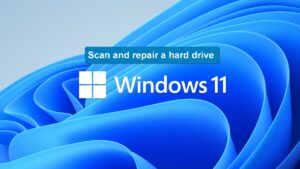Commentary: Open source has created all sorts of innovative software, but what makes open source itself innovative?

Image: uriz, Getty Images/iStockphoto
Ask someone to list a few open source innovations, and they’ll likely come back with “Linux,” “Kubernetes,” or some other particular project. (Mea culpa.) Not Dr. Dirk Riehle, the professor of Open Source Software at the Friedrich-Alexander University Erlangen-Nürnberg. Riehle has been researching and writing about open source for well over a decade, and when he writes about open source innovations, he’s thinking of more foundational elements that yield innovative code.
What are open source’s four biggest innovations, according to Riehle? If you picked “GPL vs. Apache-style licensing,” well, you’re only sort of wrong.
Legal innovation
Open source (and its kissing cousin, free software) guarantees three legal rights: “Free-of-charge use of the software, access to and modification of the source code, and [the ability] to pass on the source code and a binary copy.” In turn, the license specifies the obligations the downstream recipient of the software must perform if she modifies the software and then distributes it.
SEE: How to build a successful developer career (free PDF) (TechRepublic)
At the heart of open source’s legal innovation, said Riehle, is something bigger than “just giving the software away”:
People sometimes ask why developers don’t just put their work into the public domain. This misses the point: By putting something into the public domain, an author typically waives their rights. Most authors don’t want that. Rather they want to be specific which rights they grant and which obligations they require.
Today we’re running into trouble because that “specificity” Riehle highlights is becoming, well, too specific, with developers blocking certain classes of organizations from using their software. In our fractious and fraught world, this is understandable. Unfortunately, it’s not open source, given that non-discrimination is a cardinal virtue of open source licensing.
Even so, this debate is far from over, which proves to be one of the great things about open source: Community. We don’t always get along, but we’re usually willing to talk about it.
Process innovation
If legal innovation is the “brain” of open source, community is the “heart.” While collaborative development didn’t start with open source, open source has done more to codify the practice than anyone or anything else. Summarizing what open source process innovation looks like, Riehle wrote:
In open collaboration, participation is egalitarian (nobody is a priori excluded), decision-making is meritocratic (decisions are based on the merits of arguments rather than status in a corporate hierarchy), and people are self-organizing (people choose projects, processes, and tasks rather than get assigned to them).
Of course, no open source community practices this perfectly (projects are not always as meritocratic as we might like), but community is what makes a project truly sing (e.g., Linux over OpenSolaris).
Tool innovation
Under the “only constant is change” adage, open source has a habit of centralizing on particular forges where software can be found…then discarding them. Today much of the world’s open source software resides on GitHub, but not long ago it was Google Code…or SourceForge…or a range of other repositories. Wherever we choose to host that software, however, Riehle highlights the forge as a distinctly open source innovation.
Maybe.
More persuasive for me is his argument that version control systems and, in particular, Git, a distributed version control system, is a huge open source innovation. Writing about Git recently, I noted, “Git wasn’t the first version control system for software, but it’s had a profound impact on how all organizations build and, increasingly, operate software.”
SEE: Top 100+ tips for telecommuters and managers (free PDF) (TechRepublic)
Business model innovation
In this world increasingly driven by open source, it’s no wonder that we spend a lot of time arguing about Riehle’s final open source innovation: How we make money.
“Open source is changing the software industry by way of how it makes new and breaks old business models,” Riehle has written. “Open source itself may not be a business model, but it is a potent strategy and tool to use in a competitive environment.” Over the years we’ve fretted about new models like Open Core even as gargantuan piles of cash kept moving around through acquisitions or customer contracts.
Given how much money has been made, and how much more promises to be made as companies experiment with new models, Riehle is likely correct to argue, “[W]e can expect funding for open source software development to increase by a couple of orders of magnitude in the future.”
This means we’ll see lots more open source innovation (of these and other, new kinds) for many years to come. Bonanza!
Disclosure: I work for AWS, but these are my opinions and don’t relate to my work at AWS.
Also see
Source of Article




